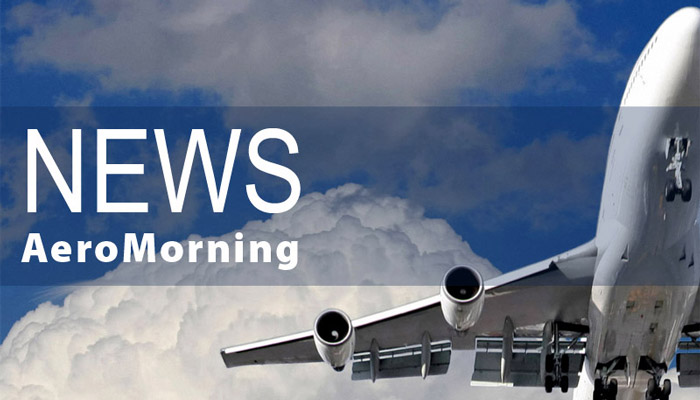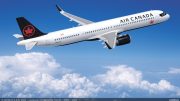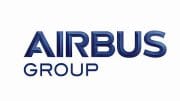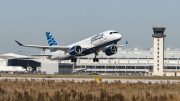easyJet plc (“easyJet” or the “Company“) today announces that it has entered into conditional arrangements with Airbus S.A.S. (“Airbus“) under which Airbus has agreed to supply 56 A320neo family aircraft for delivery between FY 2026 and FY 2029, utilising purchase options and purchase rights under the existing contract with Airbus (the “Airbus Amendment” and the existing contract with Airbus being the “2013 Airbus Agreement“). In addition, the Company proposes to convert 18 A320neo aircraft planned for delivery between FY 2024 and FY 2027 to 18 A321neo aircraft deliveries. The Company has also entered into conditional arrangements with CFM International S.A. (“CFM“) to ensure that the commitments given under the current engine supply agreement between the Company and CFM will cover aircraft delivered under the Airbus Amendment (the “CFM Amendment“, together with the Airbus Amendment, the “Proposed Purchase“).
The Proposed Purchase firms up easyJet’s order book with Airbus to calendar year 2028, continuing the Company’s fleet refresh, as the 156 seat A319s and older A320s (180 and 186 seat) leave the business and new A320 (186 seat) and A321 neo (235 seat) aircraft enter providing up gauging, cost and sustainability enhancements to the business. The directors believe this will support the delivery of our strategic objectives and provide the aircraft to help build strong shareholder returns.
This purchase will:
• Secure Certainty of Aircraft Supply: Airbus delivery slots are increasingly scarce, with no slots being available until 2027. By securing delivery slots now, easyJet ensures future deliveries between FY 2026 and FY 2029 to replace aircraft leaving the fleet. The Company and its group’s ability to maintain desirable slots and sustain its route network depends on the timely delivery of aircraft.
• Maintain Operational Scale: The new aircraft will be used to replace older aircraft as they reach the end of their useful life. These aircraft will become economically unviable for our high intensity low-cost operation and will need replacement if we are to maintain the current scale of our business.
• Utilise the Benefits of the 2013 Agreement: The new aircraft will be purchased under the 2013 Agreement, meaning the Company will continue to benefit from the highly competitive pricing and the flexibility rights in this agreement. These aircraft are priced very substantially below the Airbus list price, and benefit from attractive price escalation protection. In addition, the Airbus Amendment continues to offer flexibility with respect to delivery dates and the ability to convert A320neo aircraft to A321neo aircraft.
• Benefits of New Generation Technology: The new aircraft will continue the modernisation of the easyJet fleet. The new aircraft will deliver between a 15% and 25% unit cost fuel efficiency improvement (depending on which aircraft they replace). This will significantly reduce easyJet’s fuel costs and therefore improve our overall cost base. It will also reduce the costs of compliance with various environmental regulations. The costs of carbon emissions will increase significantly over the next few years, and increased fuel efficiency will lead to a proportional reduction in carbon emissions. Additionally, some airports provide discounted fees for new generation aircraft, further enhancing the economic benefits.
• Increase Aircraft Size: The new aircraft will also facilitate further up-gauging of the fleet – increasing the average seat count per aircraft of the easyJet fleet. This is achieved through some of the new A320s (with 186 seats) replacing smaller A319s (with 156 seats) and 180 seat A320s. Further up gauging will also occur as a result of additional A321neo aircraft (with 235 seats) being introduced into the fleet. This will result in further improvements in cost efficiency, with the costs of each flight spread across a greater number of passengers. The A321neo is a highly cost-efficient aircraft, well suited to higher demand or longer sector length parts of the Company’s network.
• Sustainability Benefits: The new aircraft are aligned with easyJet’s sustainability strategy, with the adoption of the more efficient new technology aircraft being a core component of easyJet’s path to net zero emissions. Alongside this, the new aircraft are significantly quieter, with half the noise footprint of the older aircraft they are replacing.
The directors believe the proposed purchase supports the delivery of easyJet’s overall strategic objectives. Given constraints on Airbus delivery slots, should the Proposed Purchase not proceed, easyJet would not have a secure supply of aircraft between FY 2026 and FY 2029 and would therefore need to either decrease its fleet size or source alternative new generation aircraft with higher ownership costs. If instead easyJet sourced aircraft from the secondary market, this may expose easyJet to older technology. easyJet would face greater exposure to fluctuating fuel prices and carbon related taxes and would be competitively disadvantaged relative to the more modern fleets operated by its competitors. In addition, easyJet would be delayed in achieving its sustainability and net zero emissions objectives.
The Proposed Purchase would substantially complete the 2013 Airbus Agreement with Airbus whilst also securing delivery slots between FY 2026 and FY 2029 to replace aircraft leaving the fleet.
At 2018 average list prices for the Airbus aircraft (the latest year for which Airbus has published list prices for the relevant aircraft), the aggregate purchase price for the Proposed Purchase would be approximately USD6.5 billion. The aggregate actual price for the aircraft will be very substantially lower because of certain price concessions granted in connection with the 2013 Airbus Agreement.
The aircraft associated with the Proposed Purchase will be financed over a number of years through a combination of easyJet’s internal resources, cash flow, sale and leaseback transactions and debt. While the Board will regularly review optimal sources of financing, there is currently no expectation that shareholders will be asked to fund any aspect of the Proposed Purchase.
Although the Proposed Purchase was already envisaged by the shareholders when they approved the 2013 Airbus Agreement and subsequent amendments, in view of its size, the Proposed Purchase constitutes a Class 1 transaction under the Listing Rules and is therefore conditional on shareholder approval at a general meeting of the shareholders (the “General Meeting”). A circular is expected to be sent to shareholders in due course giving further details of the Proposed Purchase and containing notice of a General Meeting at which a resolution to approve the Proposed Purchase will be proposed.
Johan Lundgren, easyJet Chief Executive said:
“The proposed purchase firms up our orders with Airbus between FY 2026 and FY 2029, continuing the company’s fleet refresh, as the older A319s and A320s leave the airline and new A320 and A321 neo aircraft enter, providing benefits to easyJet through up gauging, cost efficiencies and sustainability enhancements. We believe this will support positive returns for the business and the delivery of our strategic objectives.”
Source : easy jet














Be the first to comment on "Proposed purchase of 56 Airbus A320neo family aircraft and conversion of 18 A320neo family aircraft to 18 A321neo aircraft"